Combustible cladding: Melbourne apartment owners struggle to sell
Unknown costs looming over rectification works are causing major pain in the property market — with would-be buyers unable to finance. Here’s why.
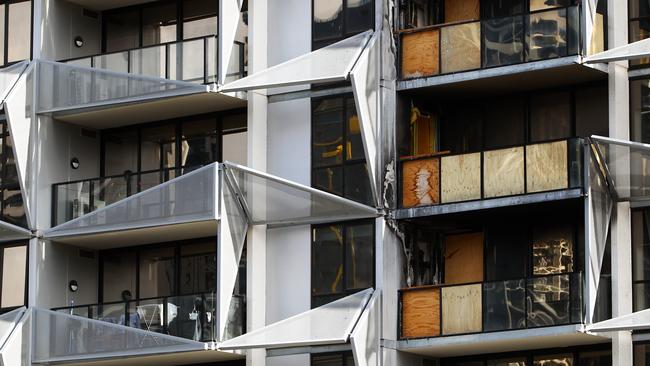
Cladding-affected apartment owners are struggling to sell their homes and have unknown costs and timelines hanging over their heads six years after the establishment of the state government’s dedicated task-force into the flammable building material.
Would-be buyers can’t get finance for city pads that need to undergo rectification works for non-compliant cladding when body corporates can’t state exactly how much unit owners will need to fork out for vital removal and replacement in a complex and drawn-out process.
G & H Property Group director Gavin Zeitz has sold about 25 cladding-affected apartments and says it is “very common” for owners to be completely in the dark when it came to related costs and facing significant financial stress as a result.
RELATED: Flammable cladding apartment building risk list grows in Melbourne
Material facts: Known murders, flammable cladding, meth must be disclosed in Victoria
Melbourne flammable cladding repairs could overwhelm city’s rental market


“If you’ve been hit hard by interest rates and are feeling the pinch of cost of living, you can’t sell your property and you’re financially stuck, you’re forced to take whatever you can get from a cash buyer to get out of the situation,” he said.
Mr Zeitz said owners often did not even realise they had a cladding issue until they went to sell, and banks would not lend without a specific cost and this could take years to nail down.
“It’s a good example of the rich getting richer,” he said.
“The only people who can buy them right now are cash buyers. People who need to get finance can’t. And I’ve got so many ready and waiting. There should be a better process to it, honestly, more communication between the body corporate and banks to allow finance for this scenario. It’s too slow. Two years is just ridiculous, even 12 months is just ridiculous.”
Mario Borg Buyer’s Agents founder Mario Borg said he would encourage potential buyers to stay away from cladding-affected builds — unless they could and wanted to pay cash.
“Lenders don’t like the unknown factor,” he said.
“As a general rule if there is an outstanding cladding issue and it hasn’t been certified, then banks generally just don’t want to know about it.”
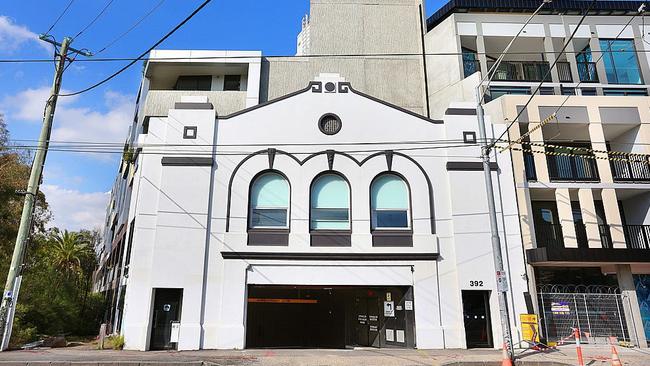
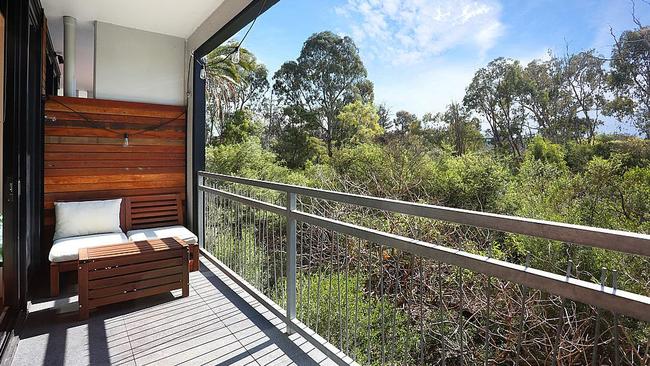
Mr Borg, also a director of Masters Broker Group, said lenders “don’t like to lend against anything that’s uncertain” and not knowing what rectification works would cost was a no-go.
Mr Zeitz has had the one-bedroom listing at 8/392 St Georges Rd, Fitzroy North, priced at $450,000-$475,000, for about seven months, with about 25 buyers on it and a deal close but the unknown cladding cost has stalled a sale.
It’s Garry Elsum’s only investment property, owned as part of his self-managed super fund, and it’s starting to cost he and his wife “a lot of money”.
“Interest rates have been going up and we’ve got our loan through our super fund so it’s up around 8 per cent already, we can’t offload it because no one wants to take it because of the cladding and it’s costing me a lot of money. It’s pretty stressful because there are other avenues we want to go down with our super fund,” he said.
“I’m 57, nearly 58, and so’s my wife and we want to get it all tied up before we’re 60.”
The contract states: “The owners corporation have been informed Cladding Safety Victoria will not be offering any form of funding to rectify the combustible cladding on the building. The owners corporation is currently investigating costs for full rectification of the cladding.”
Multiple home hunters told the Saturday Herald Sun they had encountered cladding-affected properties and it was a significant turn-off.
Belle Property agent Lisa Roberts said her agency had taken a “progressive approach” in appeasing remaining concerns of buyers who did not rely on finance, commonly downsizers.
“We’ve held back a couple of $1000, sometimes $5000, $10,000, (from the vendor) until those cladding issues were resolved, which made them easier to sell … so if that money is not spent by the time the cladding issue’s resolved, that goes back to the vendor,” she said.
“If it wasn’t resolved that $5000 would go towards the cladding issue if in fact the body corporate had to pay for that.”
The state government dedicated $600m to address the issue of combustible cladding on privately owned residential buildings, progress building reform and undertake cost recovery against original building practitioners under the Cladding Safety Victoria banner in July 2019.
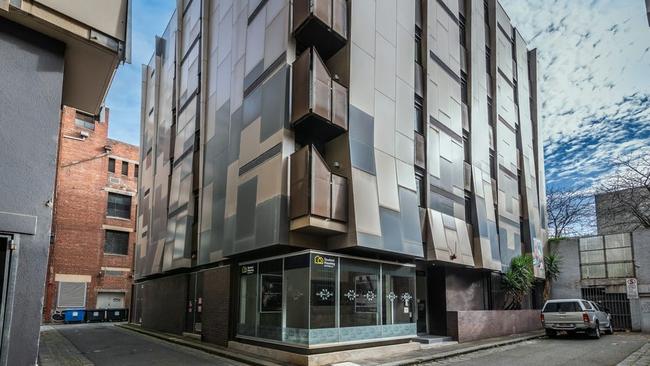
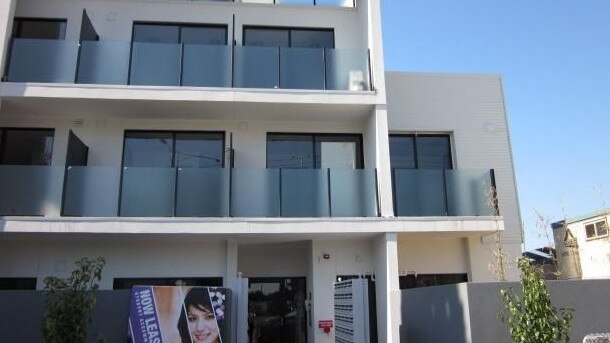
CSV assists owners through the complex process of fixing combustible cladding on apartment buildings in Victoria; prioritising funding towards those buildings with the highest risk of combustible cladding while providing help and guidance for lower risk buildings.
As of June 30 last year, CSV had expended about $263m funding the rectification of private apartment buildings and is continuing to fund further projects.
The 207 buildings rectified by CSV equates to more than 9000 individual homes and more than 18,000 people who are safer in 84 different Victorian suburbs.
CSV’s remit for privately owned buildings is confined to the highest-risk Class 2 residential buildings, because people sleep in them.
The owners of commercial buildings are required to pay for the rectification of combustible cladding themselves.
Buildings that have been assessed as a low-moderate risk through the audit may require some rectification of non-compliant cladding or other essential safety measures. The responsibility for rectification remains with the owner.
Where the Victorian Building Authority is declared as the Municipal Building Surveyor, CSV works closely with owners and owners corporations to provide regulatory information on enforcement, and provide some guidance on how to make their building safe and compliant.
This usually involves the owners engaging their own consultants and building practitioners to advise them on their situation.
The Victorian Cladding Taskforce was established in July 2017, the month after the Grenfell Tower tragedy in London, and following the Lacrosse Docklands fire in November 2014.
The Victorian Building Authority (VBA) has assessed more than 7000 buildings across Victoria for combustible cladding as part of the VBA’s Statewide Cladding Audit (SCA).
Sign up to the Herald Sun Weekly Real Estate Update. Click here to get the latest Victorian property market news delivered direct to your inbox.
MORE: Melbourne rentals: Listings beneath $400 per week halve in 12 months
Melbourne suburbs where the most people are moving, and rents have increased most
Aussies urged ‘to be on their guard’ for unsolicited bank loan offers as cost of living bites
Originally published as Combustible cladding: Melbourne apartment owners struggle to sell
